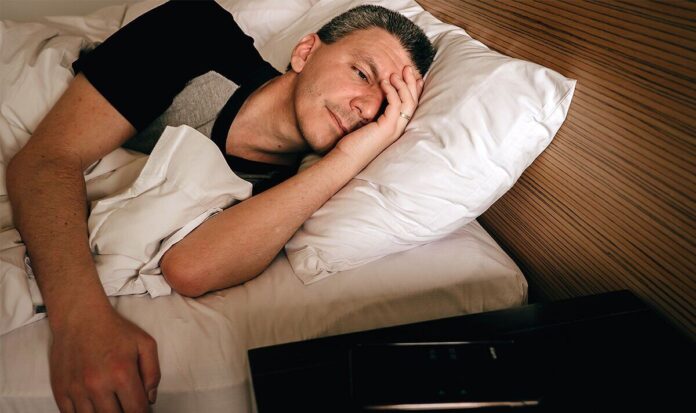It is thought around a third of all adults in the UK will experience problems with sleeping at least once. And following the change of the clocks and the temperatures falling it can be even more difficult to get a decent amount of shut-eye.We reached the end of British Summer Time on October 29, meaning the clocks were set back an hour.This can wreak havoc on our circadian rhythms – 24 hour cycles that are part of our body’s internal clock.With this in mind, sleep expert at Dormeo – Phil Lawlor – shared his eight tips for a decent night’s sleep.Don’t napAvoid naps in the day as this can make it more difficult to fall asleep at night and will disrupt your circadian pattern and quality of sleep.READ MORE: Blood clots warning: Four types of drinks to avoid – can cause ‘hardening’ of arteries Turning off devices 30 minutes before bed can help you sleep (Image: Getty Images)Your body will need to adjust to the new sleep cycle so make sure to have a regular and consistent time going to sleep and waking up.It is important to have regular bedtime and waking up time so your brain will condition itself to feel more wakeful at the time it expects to be switched on.Turn electronic screens off earlyOur circadian clock is based on lightness and darkness, and the lighter the environment the harder it is to get off to sleep. Try to stay away from light sources, particularly blue light, because this is part of the light spectrum most active in our sleep cycle that keeps you awake.Your circadian is already being disrupted with the clocks going back, so blue light will only confuse your body clock further and lead to lower quality of sleep. Getting exercise outside can help you sleep (Image: Getty Images) Tips on how to sleep (Image: Express.co.uk)It’s present in a lot of soft and energy drinks, as well as coffee and tea, so be sure to avoid these before bed. Sugary drinks and food are also liable to keep your brain hyperactive in the run-up to bedtime, so be sure to cut these out in the evening too, to ensure you have good quality of sleep.Choose a high-quality mattressSleeping on a bad mattress can cause discomfort, making it more difficult to fall asleep and potentially leading to multiple night-time awakenings.A high-quality memory foam mattress or memory foam topper will give you personalised support precisely where your body needs it, while a quality pillow will ensure your neck and head are as comfy as possible.You may also wish to choose a duvet with the right level of insulation to make sure you’re warm in the colder nights ahead.


